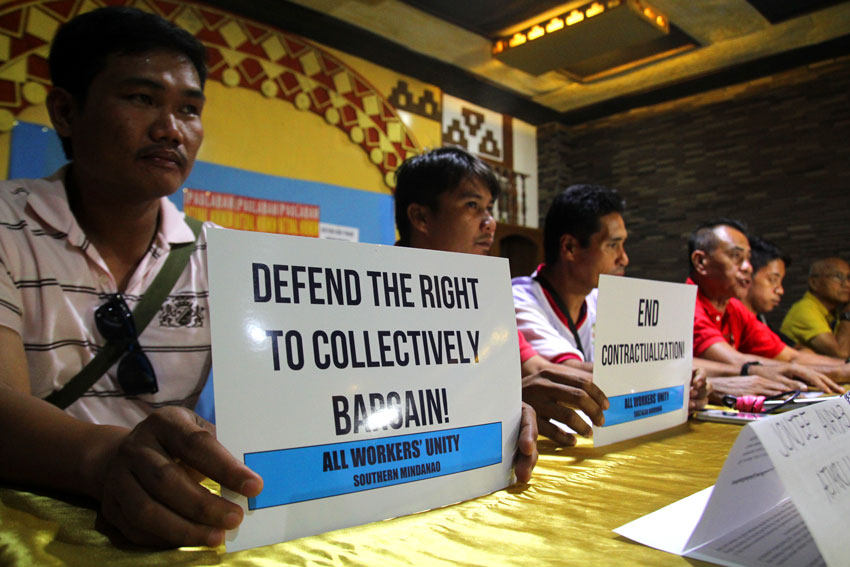
Members of labor network, All Workers Unity, in Southern Mindanao Region. (File photo)
DAVAO CITY — The Center for Trade Union and Human Rights in the country has criticized the Japanese company Asahi Flat Glass Philippines for alleged union-busting after it retrenched 44 workers including union officials, while the collective bargaining negotiations are ongoing.
Asahi Flat Glass Philippines manufactures different kinds of glasses, such as solar glass, glaze glass, figured glass etc for industrial, commercial and residential use. It is an affiliate of global giant Asahi Glass Company of Japan. Its factory in the Philippines is located in Pasig City.
In a statement, Roben Casalda, documentation coordinator of CTUHR said, the collective bargaining negotiations are derailed because of the dismissal of key officials of the local union, Asahi Glass Philippine Labor Union affiliated with the National Federation of Labor Unions and Kilusang Mayo Uno.
On January 11, AGC dismissed 44 employees including regular rank and file workers, four union officials, including its vice president, auditor and two members of the board, and some supervisory employees. Casalda said the management announced the closure of its solar department due to the alleged shutdown of its major client, Toshiba.
“However, the local union noted that the company took the affected agency workers in and placed them in other two departments leaving mostly union members out,” said Casalda.
“The move of the Japanese firm is a plain and direct attack on the union of rank and file workers in the Asahi Glass as the dismissal took place.”
“The report of contract employees being transferred to other departments only shows that the closure of one of AGC’s departments need not result in workers retrenchment or dismissal. But the company is using the alleged loss of its client, Toshiba, to single out and discriminate union members by dismissing them, thereby effectively undermining the union which is negotiating for a new agreement,” Casalda added.
CTUHR also cited that AGC has been contractualizing its labor force in the last two decades. From over 800 regular workers in the early 1990’s, the total number of regular workers declined to only 181 in 2004, while the number of contract or temporary workers increased. Since 2008, the number of regular workers did not change though its total workforce ranged between 500 to 700 workers, depending on seasonal demands from clients.
As the number of permanent workers declined, the number of union members also shrunk to 99 following waves of retrenchment beginning 2008 despite a CBA provision stating that the company must maintain at least 192 regular employees. Last year, the company also dismissed 37 workers purportedly to “prevent further losses” while hiring temporary workers.
Casalda said the alleged losses are used by companies in the country as reason to attack unions. He said this has also resulted to joblessness.
“Under the Aquino administration, it has become so easy for companies to retrench or dismiss employees under the pretext of losses without worrying about obligations. You cannot find meaning in the much-hyped economic growth under this administration, but growth for the few and destitution,” he said. (davaotoday.com)










